The Waterstone’s children’s laureate finds it “depressing” that it’s easier to get a book published on Norse mythology than the story of Christ. He speaks to us about normalising faith, telling hopeful stories and why he no longer apologises for being a Christian
Whether he’s creating sporting spectacles or plotting soap operas, amusing children or challenging believers, Frank Cottrell-Boyce is an extraordinary storyteller.
The 65-year-old’s work is informed by and, on occasion, infused with biblical stories. There are saints in his children’s book Millions (Pan Macmillan) and hymns and Christian imagery aplenty in his critically acclaimed London 2012 Olympic ceremony. His latest screenplay, the animated film version of Michael Morpurgo’s Kensuke’s Kingdom (Heinemann) features a Christ figure and a story of redemption.
“Our culture is marinaded in these [biblical] texts,” he says, “so they enrich us but also become invisible. They’re the salt in the meat that you don’t appreciate. Every time you go back to them, they just flare up at you.”
A devout and enthusiastic Catholic, he is unabashed and unapologetic about his faith. Having recently been invited to write a study guide on forgiveness, Cottrell-Boyce says he found the exercise both enriching and challenging in a way he didn’t expect. “It’s one of the most important lessons you learn as a writer,” he tells me. “Stories need endings. The murder is avenged. The mystery is solved. Love is requited, or tragically unrequited. We think that forgiveness is the end of the story, but it is just the beginning.”
Cottrell-Boyce lives in Liverpool with his wife, Denise, a theologian, and they have seven children. Writing fun and clever adventures for the nine-to-twelve age group is his continuing passion and he has 13 bestselling titles to his name.
I like to read a bit of the New Testament every day
“I think children’s books engage with the big things – death, loss, growing up or responsibility,” he says. “There are powerful forces telling children the world is not a wonderful place. But I think, as a children’s writer, you have a duty to provide hope.”
This summer he’s taken on another new challenge as the Waterstone’s children’s laureate and he’s likely to bring as much enthusiasm, commitment and creativity to this as everything else he’s undertaken.
You are the 13th children’s laureate, taking over from Joseph Coelho. How did you receive the news?
I was opening a library, and my phone rang. It was Emily Drabble who works on my podcast [‘The Island of Brilliant’, which recommends children’s books].
I was really taken aback. It’s supposed to be top secret until the reveal so this could not have come at a worse time or place: I had dozens of librarians staring at me like meerkats. I put the phone down and said: “It’s great news…the plumber’s coming!” That was last November, and I kept it secret right up to the day.
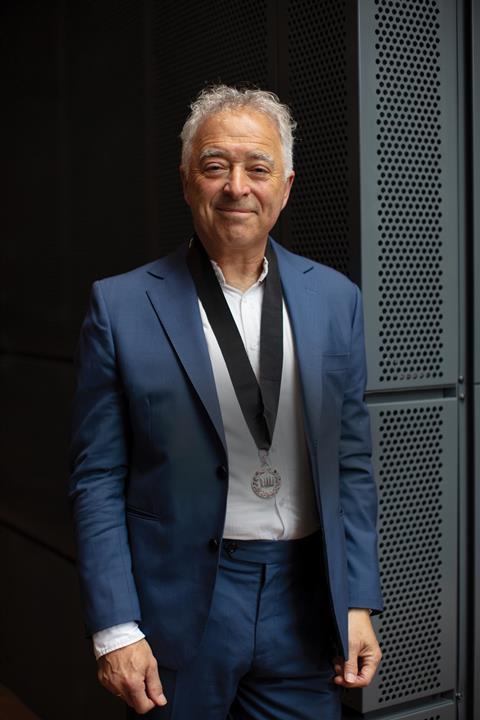
Why is it important for you to take on this role?
I think children did very badly out of two big crises we’ve had – austerity and the pandemic. Both those crises accelerated inequality and I didn’t really hear anybody talking about it. So that’s been growing within me. We’ve had twelve laureates talking about how lovely reading is. I think it’s time that someone said: “OK, what should we do about it?”
It can’t just be a protest or a celebration. We need a policy change so I’m seeing my role as being much more about lobbying. I’ll hold a conference, write something like a manifesto or a white paper that has some solidity to it. I’m looking for systemic change.
My focus is very much early years. That’s not the audience [for my books] at all, but I think that’s where an intervention can make the biggest difference.
You write stories that are funny, touching and uplifting, and they draw on your faith in their storylines. When your first book Millions was being produced as a film, were you challenged on that content?
It was very conventional – a three-act structure with the hero journey – but [the executives] all thought that Damian should be cured of his ability to see saints, that he should move on at the end. I said: “Really?” When I lose my keys, I ask Anthony of Padua to help me. If he was literally in the room, looking under the couch, that would be a big advantage to me. You realise that you’re in a completely different epistemological space from some people.
But you convinced them?
I said: “Look, this is what I believe” and I won it bit by bit. It’s a good ending, so why would you change it? But it was during the publicity that I was quite hesitant about saying why the film was like this. Now I wouldn’t be. [Comedian] Frank Skinner’s got a great phrase. He says: “You need to put your hand up.” And I hadn’t put my hand up. Actually, as soon as you put your hand up, people love it.
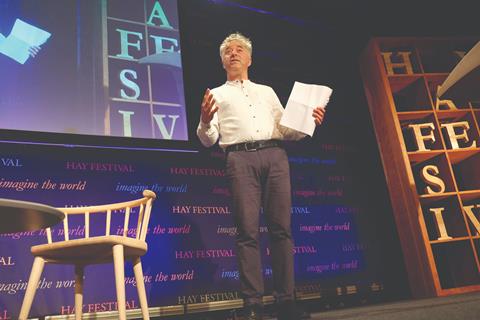
Was that not what you were expecting?
I guess you make yourself vulnerable when you tell the truth about yourself. But it was life-changing, actually, an eye-opener, because people who are not Christian like to know somebody who is. They like it that you say: “I’ll light a candle for you” or: “I’ll say a prayer for you.” I think there’s a hunger that people don’t know how to feed. There are a lot more people than you think who are very willing to outsource their prayers!
It’s been said that you have a “palpable undefensiveness” about your faith. How did you come to that position?
It took me a long time. I think I was embarrassed. You feel as though you somehow need to answer all the questions about Christianity – the bad side of its history. And I’ve just stopped feeling responsible. Atheists don’t feel the need to be answerable for Hitler or Stalin.
I like the fact that in church you’re forced to mix with people that you don’t necessarily agree with
How did you come to faith?
I was brought up a Christian, so I haven’t had that conversion experience. I don’t have that burning evangelical thing, you know; it’s just part of me.
We lived in a very dull housing estate and there was something about walking through that [church] door, and finding you were in Byzantium. I loved the beauty of it, but also that sense of presence. And it was social as much as anything; you saw everybody, there was that lovely walk when people would fall into step, and you were together.
What does your faith mean to you today?
One thing that’s really come home to me in the last few years, for all kinds of reasons – some personal, some political – is the importance of knowing how to be happy.
Our consumerism is rooted in it. We’re constantly being told we could look better, we could have bigger, more luminous lives if we just buy this, buy that. The ability to be happy, and to know that you’re happy, is hugely important personally, but on a global scale as well.
The more I look at the Gospels, the more I think they’re seen as commandments, like a set of rules. And the older you get, the more you realise that this is how to be happy. If you don’t mess other people about, you will be happier. If you learn to forgive, you will be happier. I don’t know how I missed it. Because the Beatitudes are “happy are…happy are…happy are…”
I’m always struck by the Acts of the apostles, that when they’re asked about Jesus, they don’t say: “Oh, he came to do miracles”, or: “He came to impress you.” They say: “Oh, he came for the forgiveness of sins.” That’s literally all they say about him. That’s what it’s about.
On a completely human level, I think going to church roots you in community. But that is not what it means online – a group of people agreeing with each other. I like the fact that in church you’re forced to mix with people that you don’t necessarily agree with, or like or have anything in common with. As we’ve become more polarised as a society, that’s become more important to me.
Have you ever stepped away from church?
Just in my first week at university. I didn’t go to Mass. And I was like: God, that was rubbish. I had one secular Sunday, and I thought: This is like being dead. I really missed it.
So church is an important part of your weekly routine?
I go to church on a Sunday. I always try to go on a Friday. I do morning and evening prayers. Morning prayers are the Psalms. I have a lot of problems with the Psalms, especially recently. They are incredibly aggressive, chaining kings and crushing enemies, and I find that difficult. But this was Jesus’ playlist. This is what he read. So, trying to find ways to walk in his footsteps, trying to find common ground, trying to find him, that’s really important to me.
And I like to read a bit of the New Testament every day. I love the Acts of the apostles, and I love Paul’s letters – cranky and mad as they are. I particularly love the letter of St James, because it’s so narky, it’s so ill-tempered. I read it and I think: He was really close to Jesus. When I read it, I can hear a voice. I think this is how they spoke to each other, they’re actually quite snippy. And Jesus loses it quite often!
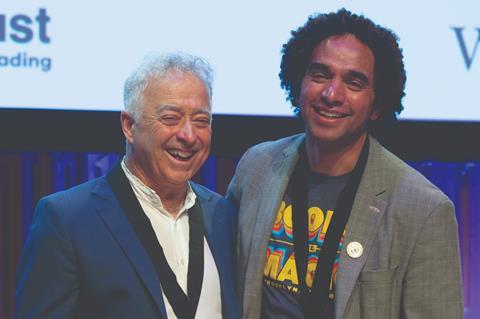
Is your personal relationship with Jesus something you work on?
I had this experience. This sounds mad, but I was in the park with the kids and there was one of those street preachers. He’s just yelling his head off and everyone was walking past him. He was talking about Jesus and Pilate. I remember him so clearly. He said: “Pilate wants an intellectual answer, but there is no intellectual answer. Because the answer is standing in front of him, it’s a person, it’s a person, it’s a person.” And that really shook me because I think of myself as an intellectual person.
It really stayed with me that it’s a personal encounter. To make any relationship work, you’ve got to spend time on it. Just turn up.
This is true of writing. Most days of writing are horrible, grim, lonely, tedious. And you finish the day with this crushing sense of failure, but you’ve got to keep turning up. It’s the same with running a marathon and it’s true of writing a book, but it’s definitely true of your relationship with Christ.
We have fewer opportunities to meet Jesus in everyday life today, outside the church setting. What do you think about that?
I think it is a huge, huge loss. Culturally we’re losing these riches. It’s much easier to get a book published about Norse mythology than it is to get a book published about the story of Christ. I find that really depressing.
Children’s books today seem to be preoccupied with sharing a ‘message’ rather than just telling a story. How do you feel about that, and your opportunity to share a Christian message?
You’ve hit the nail on the head there. Temperamentally I’m incredibly averse to having a ‘message’ because I believe in fun and play. I think sending messages is cheating. But I want to share the word, and I want to share my sense of wonder, which to me is a Christian response.
The shape of a story will reflect me, so there will be instances of providence and grace that, to me, are real things that happen in the real world. It’s telling a truth about the way you see things.
I particularly love the letter of St James, because it’s so ill-tempered
There’s also that thing of just making it normal, saying somebody went to church or they said their prayers. I always do that in my books; it’s easy to mark characters like that.
And in your films too?
It’s hard to control a movie; you can lose things. But in Kensuke’s Kingdom there’s a bit where it’s very biblical. A boy is washed up; he’s completely alone. It’s really hot, there’s no water, it is the 40 days, it is the wasteland, it is the valley of bones. And he just lies on the floor and says: “Help me”, and immediately help comes in the shape of Kensuke, who’s this big, shaggy, Christ figure. So, it’s there in the structure, but it’s hard to find a way to express that in a movie. It’s very difficult.
A film is a big ask – Millions took eight years, Kensuke’s Kingdom has taken 20 years. There’s a point at which you think: Is this a good use of my creative energy?
What impact would you like your work to have?
That’s a tough question. The honest answer is that I’d like to write that book which everyone’s got to read. I’d like to have a huge impact, and I’d like it to be a book.
To hear the full interview listen to Premier Christian Radio at 8pm on Saturday 12 October or download ‘The Profile’ podcast from premier.plus













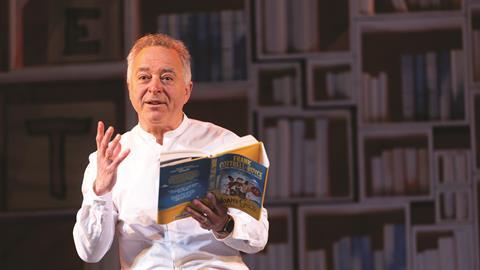

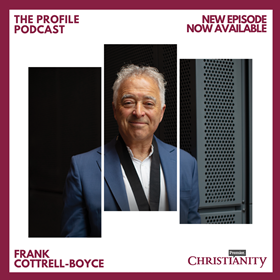
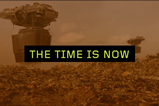
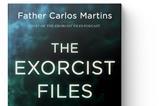
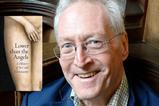


















No comments yet